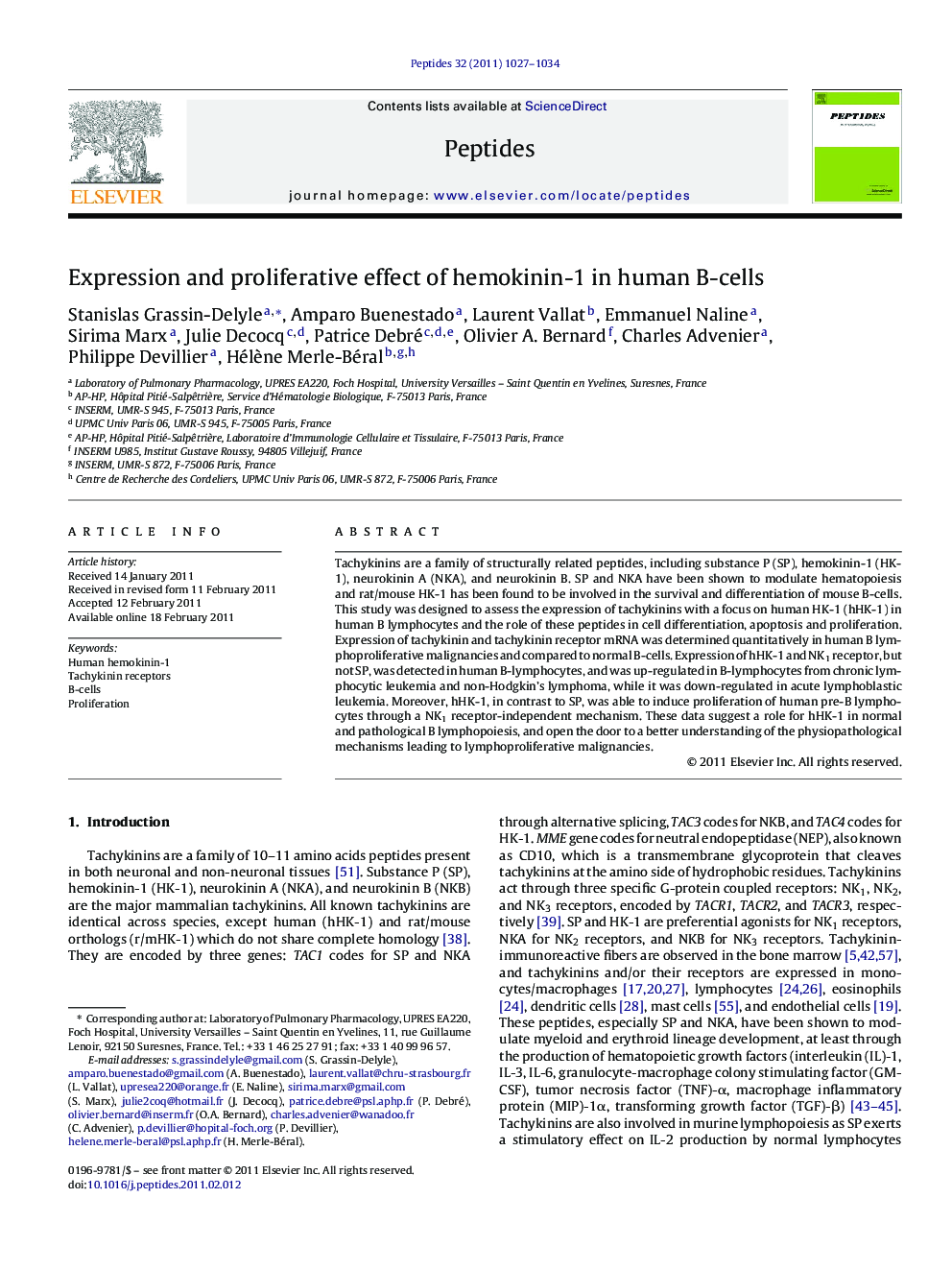| Article ID | Journal | Published Year | Pages | File Type |
|---|---|---|---|---|
| 2006557 | Peptides | 2011 | 8 Pages |
Tachykinins are a family of structurally related peptides, including substance P (SP), hemokinin-1 (HK-1), neurokinin A (NKA), and neurokinin B. SP and NKA have been shown to modulate hematopoiesis and rat/mouse HK-1 has been found to be involved in the survival and differentiation of mouse B-cells. This study was designed to assess the expression of tachykinins with a focus on human HK-1 (hHK-1) in human B lymphocytes and the role of these peptides in cell differentiation, apoptosis and proliferation. Expression of tachykinin and tachykinin receptor mRNA was determined quantitatively in human B lymphoproliferative malignancies and compared to normal B-cells. Expression of hHK-1 and NK1 receptor, but not SP, was detected in human B-lymphocytes, and was up-regulated in B-lymphocytes from chronic lymphocytic leukemia and non-Hodgkin's lymphoma, while it was down-regulated in acute lymphoblastic leukemia. Moreover, hHK-1, in contrast to SP, was able to induce proliferation of human pre-B lymphocytes through a NK1 receptor-independent mechanism. These data suggest a role for hHK-1 in normal and pathological B lymphopoiesis, and open the door to a better understanding of the physiopathological mechanisms leading to lymphoproliferative malignancies.
Research highlights► Human hemokinin-1 and NK1-receptor are expressed in human B-cells. ► Their expression is affected in B-cells from human malignancies. ► Hemokinin-1 affects proliferation of B-cells but not apoptosis or differentiation. ► Hemokinin-1 may play a role in human normal or pathological lymphopoiesis.
